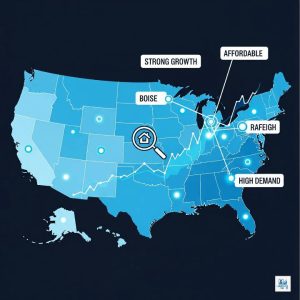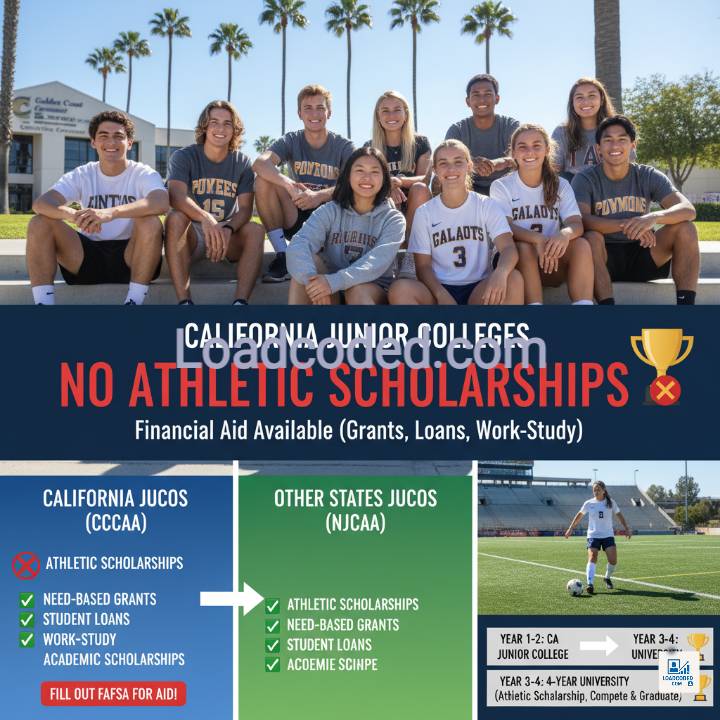How to Become Best Real Estate Agent: Proven Tips for Success
Becoming the best real estate agent is possible! Learn the essential skills, tools, and strategies to grow and succeed in real estate today.
How to Become Best Real Estate Agent?
That’s the big question but we find out why the real estate succeeds and why people can do without your roles when their plan to invest wisely.
Why Real Estate Success Matters
Real estate has long been one of the most rewarding industries for those who thrive on people skills, negotiation, and business strategy. Whether you’re helping families find their dream homes or guiding business owners to profitable investments, becoming a top-performing real estate agent opens doors to both financial success and personal fulfillment. But excellence in this field doesn’t come by chance but it’s the result of preparation, skill-building, and consistent effort.
This guide will walk you through everything you need to know about becoming the best real estate agent, from obtaining your license to mastering marketing, networking, and negotiation. Carefully read down the article, let’s know the roles of a real estate agents.
Role of a Real Estate Agent
What Does a Real Estate Agent Do Daily?
A real estate agent acts as a bridge between buyers and sellers. Daily responsibilities include:
- Meeting with clients to understand needs
- Conducting property showings and open houses
- Researching market trends and listings
- Drafting and reviewing contracts
- Negotiating deals on behalf of clients
While the tasks may seem straightforward, success lies in execution and consistency.
Skills Every Great Agent Must Have
To stand out in real estate, you will need a blend of soft skills and technical knowledge:
- Communication – clear, persuasive, and empathetic conversations
- Negotiation – securing the best possible outcomes for clients
- Organization – managing multiple listings and client needs
- Problem-solving – handling obstacles during transactions
- Marketing expertise – showcasing properties effectively
Essential Education and Licensing Requirements
Real Estate Licensing Process
Becoming a real estate agent begins with obtaining a license. While requirements changee by country or state, the general process involves:
- Completing a pre-licensing course
- Passing a licensing exam
- Applying through the local real estate commission
- Joining a brokerage to begin practicing
Continuing Education and Certifications
Top agents never stop learning. Advanced certifications, like Accredited Buyer’s Representative (ABR) or Certified Residential Specialist (CRS) enhance credibility and attract high-value clients.
Building a Strong Foundation
Choosing the Right Brokerage
Your brokerage is your professional launchpad. Look for one that offers:
- Strong mentorship programs
- Fair commission splits
- A reputable brand name
- Ongoing training opportunities
Developing a Personal Brand
Today’s best agents aren’t just salespeople; they’re brands. Establish your unique identity by:
- Creating a professional website
- Using consistent branding across platforms
- Sharing valuable content about the real estate market
Local Markets
Local expertise gives you a competitive edge. Study:
- Neighborhood demographics
- Price trends
- School districts
- Upcoming developments
Clients trust agents who truly know the community.
Mastering Communication and Networking
Building Client Relationships
Real estate is a relationship business. Provide value beyond the transaction by:
- Following up after sales
- Offering homeownership tips
- Staying in touch during life milestones
Leveraging Social Media & Digital Platforms
Platforms like Instagram, LinkedIn, and Facebook have become essential tools. Share:
- Virtual property tours
- Market updates
- Success stories
Networking with Other Professionals
Strong connections with lenders, contractors, and attorneys can generate valuable referrals and help you better serve clients.
Marketing Strategies for Real Estate Agents
Online Marketing Techniques
- SEO & Blogging: Create helpful content to attract clients online
- Google Ads & Facebook Ads: Target buyers and sellers with precision
- Email Marketing: Nurture leads over time
Traditional Marketing That Still Works
- Direct mail postcards
- Yard signs
- Local sponsorships and community events
Technology and Tools for Real Estate Agents
CRM Software and Lead Management
Customer Relationship Management (CRM) tools like HubSpot or Follow Up Boss help track leads, schedule follow-ups, and close deals more efficiently.
Virtual Tours, 3D Walkthroughs & AI Tools
Technology has transformed real estate. Tools like Matterport and AI-driven listing software create immersive experiences that attract remote buyers.
Negotiation and Closing Skills
How to Handle Buyer Negotiations
- Listen carefully to client priorities
- Prepare data on comparable properties
- Stay calm under pressure
Tips for Smooth Property Closings
- Double-check all documents
- Keep communication clear between parties
- Anticipate potential obstacles
How to Over Challenges in Real Estate
Managing Market Fluctuations
The market won’t always be booming. Diversify by working with both buyers and sellers, and consider commercial real estate during downturns.
Handling Rejection and Setbacks
Every agent faces deals that fall through. Resilience and persistence separate the best from the rest.
Time Management and Work-Life Balance
Productivity Tools for Agents
- Task management apps (Trello, Asana)
- Scheduling apps (Calendly)
Avoiding Burnout
- Set work boundaries
- Prioritize health and rest
- Delegate administrative tasks
Financial Success as a Real Estate Agent
Setting Commission Goals
Plan clear annual income goals, then break them down into monthly transactions required.
Managing Finances and Taxes
Consider hiring an accountant to manage commissions, taxes, and deductions effectively.
Success Stories of Real Estate Agents
Top agents like Barbara Corcoran and Ryan Serhant started small but built empires by combining persistence, marketing genius, and adaptability.
How to Find Best Real Estate Agent

Finding the best real estate agentis not just about choosing someone with a license, it’s about selecting a professional who goes above and beyond to protect your interests. Below is a quick comparison of the qualities you’ll find in an average agent vs. a top-performing agent:
| Criteria | Average Real Estate Agent | Best Real Estate Agent |
|---|---|---|
| Local Market Knowledge | Basic awareness of listings | Deep understanding of neighborhoods, pricing trends, and future growth |
| Communication | Responds occasionally | Clear, prompt, and proactive communication |
| Negotiation Skills | Handles standard offers | Strategically negotiates to maximize client value |
| Marketing Approach | Relies on MLS listings | Uses digital marketing, social media, and professional staging |
| Client Relationship | Transaction-focused | Builds long-term trust and repeat referrals |
| Professional Network | Limited contacts | Strong ties with lenders, contractors, and inspectors |
| Problem-Solving | Struggles with obstacles | Anticipates issues and provides effective solutions |
💡 The best real estate agent isn’t just a salesperson also, they’re a trusted advisor who knows the market inside and out, communicates effectively, and always puts the client first.
Where is the Best Real Estate Market in the US

The United States real estate market is vast and dynamic, with some cities offering incredible opportunities for both homebuyers and investors. Below is a comparison of five of the best-performing real estate markets in the U.S., based on affordability, demand, and long-term growth potential:
| City/State | Median Home Price (2024) | 1-Year Price Growth | Why It’s a Top Market |
|---|---|---|---|
| Austin, Texas | $465,000 | +6.2% | Tech hub, strong job market, population growth |
| Raleigh, NC | $415,000 | +5.8% | Affordable housing, thriving economy, great schools |
| Tampa, Florida | $390,000 | +7.0% | Retiree-friendly, strong rental demand, no state income tax |
| Phoenix, Arizona | $435,000 | +4.5% | Steady growth, rising rental demand, warm climate |
| Boise, Idaho | $420,000 | +5.1% | Fast-growing community, outdoor lifestyle, strong appreciation rates |
💡 While Austin and Raleigh are ideal for long-term homeowners and tech professionals, Tampa and Phoenix shine for investors looking for strong rental yields. Meanwhile, Boise remains attractive to families seeking affordability with strong appreciation potential.
FAQs
Q1. How long does it take to become a licensed real estate agent?
(A). Usually between 4–6 months, depending on your state or country.
Q2. Can I be a part-time real estate agent?
(A). Yes, but full-time commitment often yields faster success.
Q3. What is the average income of a real estate agent?
(A). It changes widely from $45,000 to over $150,000 annually, depending on effort, location, and experience.
Q4. Do I need strong sales skills to succeed?
(A). Yes, but equally important are empathy, listening, and problem-solving skills.
Q5. Is real estate still profitable in a slow market?
(A). Yes, agents who adapt and diversify their strategies can thrive in any market.
Q6. What’s the most important tip for becoming the best?
(A). Consistency on daily actions like lead follow-ups, networking, and continuous learning make the difference.
Ending:
Becoming the best real estate agent isn’t about luck but it’s about preparation, resilience, and growth. From licensing and branding to mastering negotiation and marketing, every step contributes to long-term success. Remember: in real estate, your reputation is your most valuable asset. Build trust, serve clients with integrity, and stay adaptable to market changes.
With focus and dedication, you can stand out, attract loyal clients, and enjoy the rewards of a thriving real estate career.
For training, certifications, and market insights, you can always check on National Association of Realtors
For more related topics, we are always at your click to answer you, Here.

![What is the Difference Between an Investment Bank and a Broker Dealer? [Explained Simply] 15 sketch 1754313180238](https://loadcoded.com/wp-content/uploads/2025/08/sketch-1754313180238-150x150.jpg)
![Top 10 Best Logistics Companies to Work For in 2025 [Ranked & Reviewed] 16 sketch 1754242848456](https://loadcoded.com/wp-content/uploads/2025/08/sketch-1754242848456-150x150.jpg)








![What is the Difference Between an Investment Bank and a Broker Dealer? [Explained Simply] 24 What is the Difference Between an Investment Bank and a Broker Dealer? [Explained Simply]](https://loadcoded.com/wp-content/uploads/2025/08/sketch-1754313180238-768x419.jpg)




![Top 10 Easy Ways A Beginner Can Make Money Online With SEO in 2025 [Proven Strategies] 113 Top 10 Easy Ways A Beginner Can Make Money Online With SEO in 2025 [Proven Strategies]](https://loadcoded.com/wp-content/uploads/2025/07/IMG-20250727-WA0060-768x768.jpg)